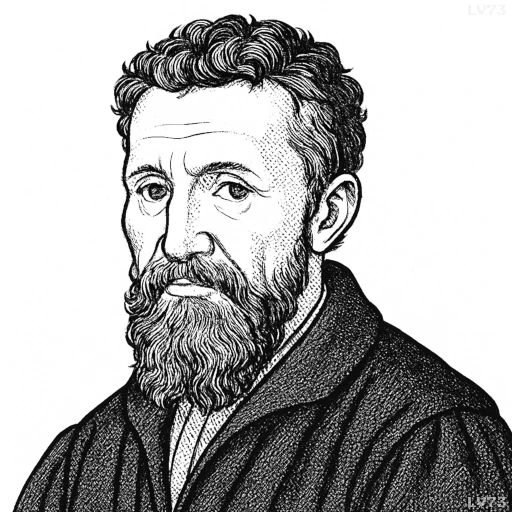“Lord, grant that I may always desire more than I can accomplish.”

- March 6, 1475 – February 18, 1564
- Born in the Republic of Florence (now Italy)
- Sculptor, painter, architect, poet
table of contents
Quote
“Lord, grant that I may always desire more than I can accomplish.”
Explanation
This quote attributed to Michelangelo reflects his boundless ambition and striving for excellence, even if it meant that the task was beyond his immediate reach. Michelangelo, known for his masterpieces and monumental works, constantly pushed the limits of his abilities, always setting his sights higher than what he could physically or practically achieve. In this prayer, he asks for the desire to pursue goals that challenge him, acknowledging that the pursuit itself is what drives artistic and personal growth. By desiring more than he could accomplish, Michelangelo was committing himself to a life of constant learning and improvement, a theme central to his work and philosophy.
This quote can also be understood in the context of creative ambition. Many artists, scientists, and thinkers throughout history have expressed a similar sentiment, understanding that innovation and progress often require reaching for the seemingly impossible. It mirrors the idea of the growth mindset, which encourages individuals to aim for goals that push them out of their comfort zones and expand their potential. Even if the goals are not fully realized, the striving toward them results in significant progress and achievement. In modern terms, this desire to “always desire more” can be seen in the way many people in creative fields embrace failure or setbacks as stepping stones toward a greater goal.
Michelangelo’s words also touch on the spiritual aspect of human ambition. By framing the quote as a prayer to God, he acknowledges a higher power in the pursuit of his goals, reinforcing the idea that great work, whether in art or life, is not just the result of personal effort, but also of divine inspiration or grace. This sense of humility before a higher purpose is common in Renaissance art, where artists often saw themselves as servants to both their craft and to a divine calling. The prayer to “always desire more” reflects Michelangelo’s ongoing spiritual and artistic journey, where the pursuit of perfection was, for him, a lifelong process.
Would you like to share your impressions or related stories about this quote in the comments section?

